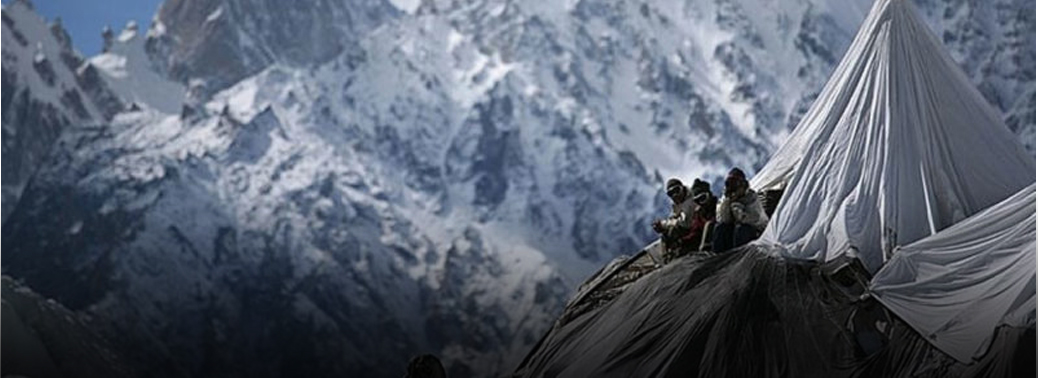13th G-20 SUMMIT
07, Dec 2018

Prelims level :
Mains level :
In News:
- Prime Minister said India will host the G20 Summit in 2022, the year the country will celebrate the 75th Independence Day. The announcement was made at the closing ceremony of the two-day summit held in Argentina’s capital Buenos Aires.
- Other than G-20 Summit, PM also participated in the first trilateral meeting with his Japanese counterpart and United States; the second Russia-India-China ‘RIC’ Trilateral Summit also took place in the Argentinean capital after a gap of 12 years.
Theme of the summit:
- Argentina has selected the theme, ‘Building consensus for fair and sustainable development,‘ for the 2018 G20 Leaders’ Summit, and has identified three key issues for the agenda: the future of work, infrastructure for development, and a sustainable food future.
India’s representation at the Summit:
- Prime Minister Narendra Modi represented India at the Summit and met US President Donald Trump, Chinese President Xi Jinping, UN Secretary-General Antonio Guterres, Argentina President Mauricio Macri, Chilean President Sebastian Pinera and German Chancellor Angela Merkel, on the sidelines of the summit.
- PM Modi presented a 9-point agenda to G20 Member Nations, calling for strong and active cooperation to deal with fugitive economic offenders. The agenda was presented during the second session of the G20 Summit 2018 on International Trade, International Financial and Tax Systems.
Prime Minister’s nine-point agenda to counter fugitive economic offenders:
- Strong and active cooperation across G-20 countries to deal comprehensively and efficiently with the menace fugitive economic offenders.
- Cooperation in the legal processes such as effective freezing of the proceeds of crime; early return of the offenders and efficient repatriation of the proceeds of crime should be enhanced and streamlined.
- Joint effort by G-20 countries to form a mechanism that denies entry and safe havens to all fugitive economic offenders.
- Principles of United Nations Convention Against Corruption (UNCAC), United Nations Convention Against Transnational Organized Crime (UNOTC), especially related to “International Cooperation” should be fully and effectively implemented.
- FATF should be called upon to assign priority and focus to establishing international co-operation that leads to timely and comprehensive exchange of information between the competent authorities and FIUs.
- FATF should be tasked to formulate a standard definition of fugitive economic offenders.
- FATF should also develop a set of commonly agreed and standardized procedures related to identification, extradition and judicial proceedings for dealing with fugitive economic offenders to provide guidance and assistance to G-20 countries, subject to their domestic law.
- Common platform should be set up for sharing experiences and best practices including successful cases of extradition, gaps in existing systems of extradition and legal assistance, etc.
- G-20 Forum should consider initiating work on locating properties of economic offenders who have a tax debt in the country of their residence for its recovery.
- Prime Minister Narendra Modi also stressed on cooperation among G20 countries on issues related to global economy, trade tensions, crude oil prices and terrorism. He highlighted the flagship programmes like the Pradhan Mantri Jan Dhan Yojna, MUDRA and Start-up India undertaken by his government to modernise the economy and promote inclusive growth.
Japan-USA-India:
- India held its first trilateral meeting with US and Japan. Indian Prime Minister named partnership as ‘JAI’. “JAI” (Hindi for success or victory) – name for the triumvirate of Japan, America (the United States) and India.
- Leaders of JAI exchanged views on Indo Pacific, maritime and connectivity issues. This is the first time that the trilateral engagement between India, Japan and the United States has been elevated to the highest political level
- The three leaders reaffirmed the importance of the Free and Open Indo-Pacific vision for global stability and prosperity, and pledged to deepen trilateral cooperation.
Russia –India- China:
- RIC revived its leadership level meet after 12 years called for strengthening multilateralism and reforming multilateral institutions including UN and WTO and underscored open global economy amid current geo-economic tensions.
- The three leaders exchanged views on expanding mutual cooperation in international forums, and to encourage greater interaction among the three countries.
Informal BRICS Meeting:
- Leaders of the emerging economies bloc BRICS reached broad consensus on the sidelines of the G20 summit to uphold multilateralism and the rules-based world order.
- Indian Prime Minister reaffirmed India’s commitment to globalisation and reformed multilateralism. The prime minister also underlined that BRICS nations have to talk in one voice for the interest of developing nations in the United Nations and other multilateral organizations.
- They exchanged views on international political, security and global economic-financial issues, as well as challenges facing sustainable development.
- They reaffirmed full support for the rules-based multilateral trading system, as embodied in the World Trade Organisation (WTO), to ensure transparent, non-discriminatory, open and inclusive international trade.
- The leaders advocated for a strong Global Financial Safety Net with an adequately resourced, quota-based International Monetary Fund (IMF) at its centre. They extended their support to Brazil which is going to host 11th BRICS Summit in 2019.






